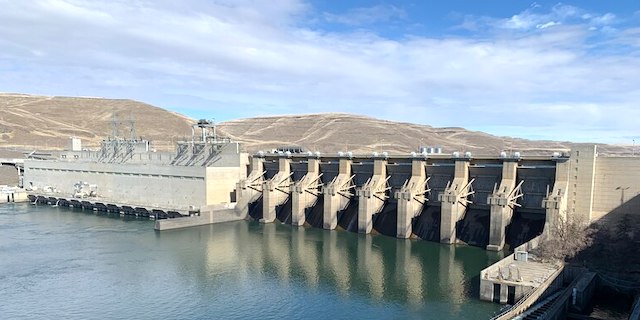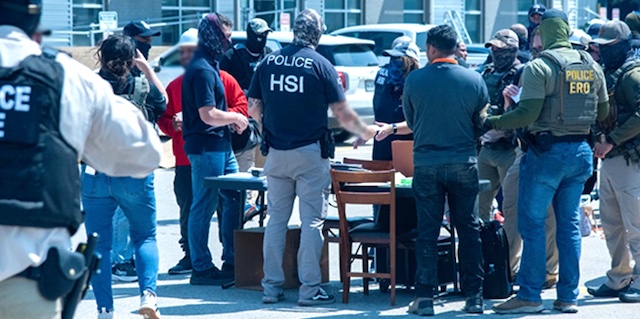WDFW quits search for cattle-attacking wolf pack
Published 11:15 am Thursday, September 16, 2021

- Several environmental groups have sued over a decision by the Washington Fish and Wildlife Commission not to adopt new rules for managing wolves.
The Washington Department of Fish and Wildlife has stopped searching for wolves attacking cattle in the Kettle River Range, the fourth time the department has failed to cull the Togo pack after saying it would try.
Two Fish and Wildlife biologists, aided by one working radio collar in the pack, spent parts of three days looking for wolves. On the second day, one employee shot at a wolf, but missed.
Fish and Wildlife spokeswoman Staci Lehman said Sept. 15 that the pack went to a different area. Although the department can’t be certain, wolves may have moved in response to the search, she said.
The department has not confirmed any depredations by the pack since Aug. 17, two weeks prior to the department calling off the search. “At this point, we’re not actively going out,” Lehman said.
State Rep. Joel Kretz, who represents northeast Washington, called the department’s failure “another broken promise.”
“I’m seeing the same things from the same people and I’m seeing the same results,” he said Thursday.
Ferry County sheriff’s wildlife deputy Jeff Flood said that Fish and Wildlife didn’t set traps or use a helicopter and quit too soon.
Flood said the department’s “half-hearted” operation belied promises the department made to step up its efforts if ranchers stepped up theirs to break the cycle of wolf-livestock conflicts in the Kettle River Range.
“There’s tremendous distrust up here, and frustration,” Flood said. “All the time, the ranchers are told to do more and more. When it comes time for the department to do something, they don’t do it.”
Flood said the wolves have not moved away from cattle. The pack — five adults and four pups — continues to harass cattle, scattering and separating cow-calf pairs, he said.
It’s likely the pack has attacked more cattle, but the remains haven’t been found, Flood said.
“How can the department pull off this magic trick — shoot their gun once and the wolves run away?” Flood asked. “How can they have such great luck doing that, but our range riders chasing them like jack rabbits don’t?”
Lehman said the department won’t talk about its tactics.
The Togo pack started a pattern of attacking cattle in the fall of 2017, according to Fish and Wildlife. The department killed one wolf in 2018, but otherwise has been unsuccessful in four other tries.
The department designates the Togo pack territory a “special focus area,” the only one in the state, because of the number of attacks on livestock. The designation raised expectations on ranchers to use more range riders and try other non-lethal ways to prevent depredations.
”They said, ‘If you guys do this. We got your back.’ Same old song and dance,” Flood said. “Unfortunately, it’s gone bad.”
The Togo pack again crossed the threshold for lethal control Aug. 17 by attacking a third calf in 30 days. The attacks occurred on private and public lands and to cattle belonging to three different ranchers.
Fish and Wildlife said all three employed non-lethal deterrents, and Director Kelly Susewind authorized the department on Aug. 26 to kill one wolf or two wolves.
The department said the order was in place until Sept. 26 or until wolves were killed, whichever came first. By Aug. 31, the department had stopped trying to remove wolves.
Scott Nielsen of the Cattle Producers of Washington said the department’s decision was “outrageous.”
“It definitely looks to us like a very limited effort,” said Nielsen, who organizes the cattlemen’s state-funded program to prevent conflicts between wolves and livestock.
”Ranchers can’t keep their livestock where they’re suppose to be,” he said. “I firmly believe there have been depredations out there. It’s really hard to find the evidence when the wolves eat it.”
Rancher Roland Singer, one of the producer’s whose cattle have been attacked by the Togo pack this summer, said two motion-triggered cameras he checked Thursday captured more than 100 photos of wolves in the previous three days.
”I can tell you, they have not changed pack behavior,” he said. “They’re still chasing cattle. We can’t get them to leave.”
Singer said he has had range-riders patrolling his pasture, including riders hired by Fish and Wildlife.
”We’ve tried to work with the game department, and we’ve followed all the rules,” he said.
Fish and Wildlife says it could renew the effort to “incrementally remove” wolves if it documents another attack.
Flood said deer hunters will be in the woods and cattle off summer pastures soon, giving the department reasons not to try to shoot wolves.
”Next year, it will start all again,” he said.






